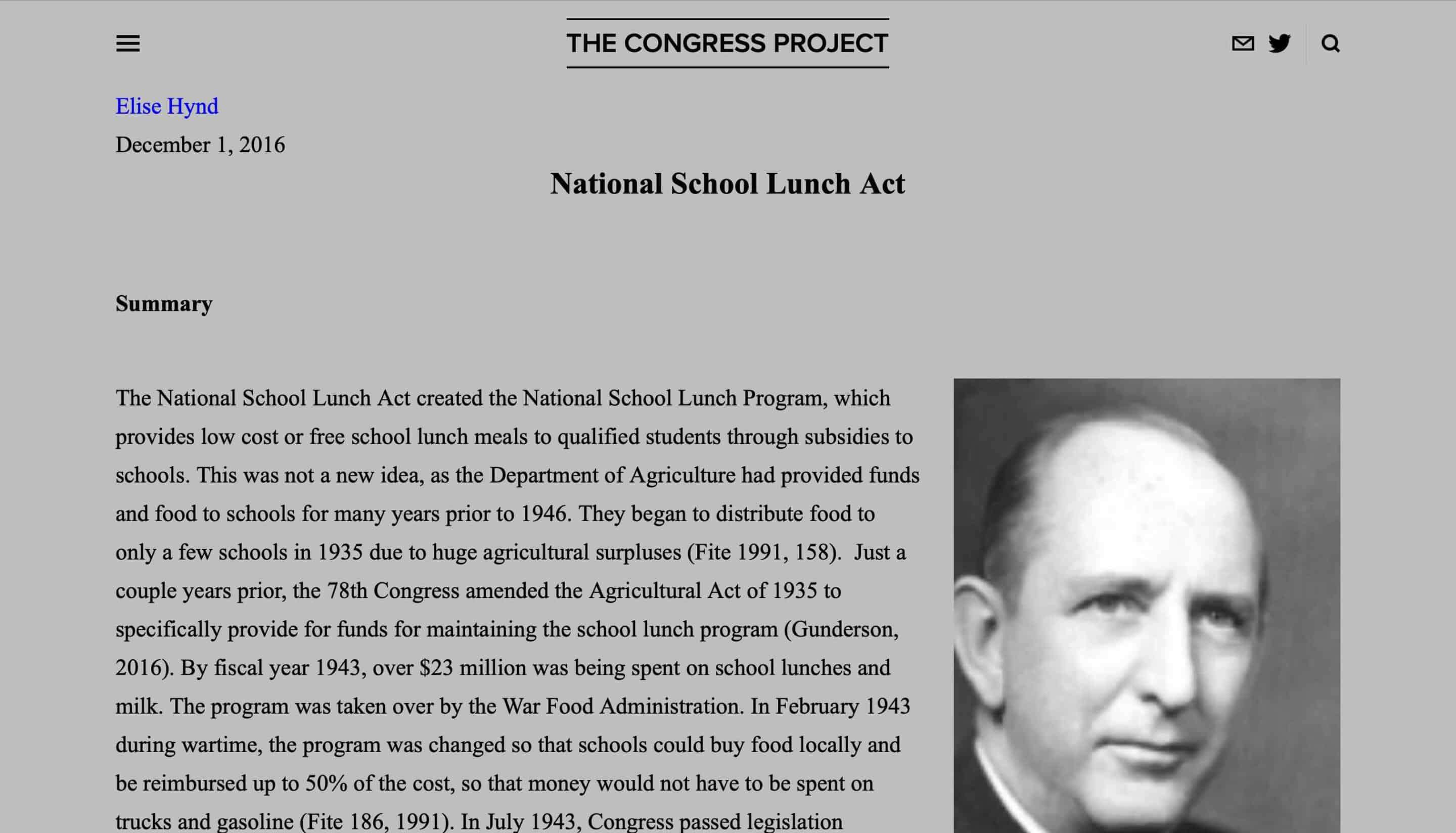This resource provides a legislative history and analysis of the National School Lunch Act of 1946. It examines its development, debates, amendments, and impacts on addressing agricultural surpluses and child nutrition in the U.S.

Related Topics
Building Trust
Building trust in COVID-19 vaccination and other public health interventions is fundamental to the work of public health and efforts to end the COVID-19 pandemic. We can build trust by combating misinformation, supporting trusted messengers and networks, improving our trustworthiness, and deepening relationships that engender trust over time. Building trust between public health and communities facilitates acceptance of public health interventions and can cultivate an equitable COVID-19 response now and conditions for well-being in the future.
Community Assessment and Engagement
Community assessment is a systematic process by which a community’s health status and related factors are examined; it is used to identify problems and assets in a community. Through community engagement, stakeholders work together to address health-related issues and promote well-being with the goal of improving health outcomes. These two processes work hand-in-hand to facilitate health improvements. COVID-19 has changed the assessment landscape in many ways–introducing new challenges for engagement, upending pre-pandemic implementation plans, and necessitating new and updated data to understand emerging health impacts and needs.
Public Health Authority
The authority to act to protect and promote the public's health has emerged over the course of our Nation’s history, and has enabled many of modern public health’s greatest achievements. Today, public health agencies use their authority to promote health, prevent the spread of infectious disease, protect against environmental hazards, advance equity and assure local public health infrastructure and health services. During declared emergencies, state and federal authorities have broader powers to act to assist governments, suspend or modify legal requirements, pass and enforce law and expend funds for the health, safety and welfare of society. Recently, some states have moved to limit public health powers. Such efforts pose a mounting challenge for public health’s response to COVID-19 and future threats.
Supporting Public Health and Frontline Workers
The COVID-19 pandemic has put immense pressure on frontline and public health workers, exacerbating myriad mental health concerns, including stress, depression, and burnout. As with COVID-19 itself, impacts have disproportionately affected certain populations more likely to hold frontline positions, including women, LatinX people, and people of color. These challenges, compounded with broader issues affecting the workforce, undermine the capacities of frontline and public health workers to provide essential services. Key strategies for supporting frontline and public health workers include building a culture of caring across leadership and organizations, improving employment practices and working conditions, and fostering social support among workers.
